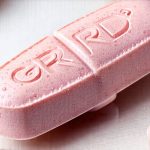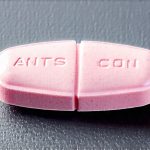Heartburn, acid reflux, indigestion – these are all terms we’ve likely encountered, and for many, experienced firsthand. Often dismissed as simply “too much food” or stress, chronic reflux can be far more complex than a dietary indiscretion. While medications like antacids and proton pump inhibitors (PPIs) offer temporary relief, they don’t always address the root cause of the problem. Increasingly, research is pointing to a surprising culprit: our gut microbiome – the trillions of bacteria residing in our digestive system. This intricate ecosystem plays a vital role not just in digestion, but also in immune function, mental health, and yes, even how well we manage acid reflux. Understanding the connection between gut bacteria imbalance (dysbiosis) and reflux is key to potentially finding more lasting solutions beyond symptom management.
Traditional approaches to reflux often focus on reducing stomach acid production, assuming excess acid is the primary driver of symptoms. However, this isn’t always the case. Reflux can occur even with low stomach acidity, and focusing solely on suppression can inadvertently worsen imbalances within the gut microbiome. A healthy gut microbiome helps regulate digestive processes, including gastric emptying and esophageal motility – how food moves through your system. When this balance is disrupted, it can contribute to a cascade of events that lead to reflux symptoms. This article will explore the ways in which gut bacteria imbalance might be linked to your reflux, and what steps you can potentially take to support a healthier digestive ecosystem.
The Gut-Reflux Connection: How Bacteria Influence Digestive Health
The relationship between our gut microbiome and reflux isn’t straightforward, but it’s becoming increasingly clear that they are deeply intertwined. A diverse and balanced gut microbiome is essential for proper digestion. Specific bacterial strains help break down food, absorb nutrients, and produce short-chain fatty acids (SCFAs) like butyrate, propionate, and acetate, which have anti-inflammatory properties and support gut health. Dysbiosis – an imbalance in the gut bacteria population – can disrupt these processes. This disruption may lead to several issues relevant to reflux:
- Impaired Gastric Emptying: Certain bacterial imbalances can slow down gastric emptying, meaning food stays in your stomach longer. This increases pressure and the likelihood of acid being forced back up into the esophagus.
- Reduced Esophageal Motility: A healthy gut microbiome supports proper esophageal motility, allowing for efficient movement of food downwards. Dysbiosis can contribute to weakened muscle function in the esophagus, making it harder to clear refluxed acid.
- Increased Intestinal Permeability (“Leaky Gut”): An unhealthy gut microbiome can compromise the integrity of the intestinal barrier, leading to increased permeability. This allows undigested food particles and toxins to enter the bloodstream, potentially triggering inflammation that exacerbates reflux symptoms.
It’s important to note that everyone’s microbiome is unique, shaped by factors like diet, genetics, stress levels, and medication use (especially antibiotics). Therefore, the specific bacterial imbalances contributing to reflux will vary from person to person. Identifying these imbalances can be complex and often requires specialized testing, but understanding the general principles of this connection is a crucial first step. If you suspect your gut health might be linked to your symptoms, consider exploring early signs.
The Role of Inflammation & Immune Response
Chronic inflammation plays a significant role in many health conditions, including gastroesophageal reflux disease (GERD). Dysbiosis can contribute to systemic inflammation through several mechanisms. When the gut barrier is compromised due to bacterial imbalances, it triggers an immune response as the body tries to defend against perceived threats. This constant state of low-grade inflammation can worsen reflux symptoms and even damage the esophageal lining over time.
Furthermore, certain bacteria produce compounds that directly stimulate inflammatory pathways. For example, some strains may increase levels of lipopolysaccharide (LPS), a potent pro-inflammatory molecule. Conversely, beneficial bacteria help regulate the immune system and reduce inflammation. SCFAs produced by these helpful microbes have anti-inflammatory effects, strengthening the gut barrier and calming down the immune response.
The interplay between gut bacteria, inflammation, and reflux is bidirectional. Reflux itself can also contribute to gut dysbiosis. Stomach acid repeatedly entering the esophagus and even reaching the small intestine can disrupt the delicate bacterial balance, creating a vicious cycle of imbalance, inflammation, and reflux symptoms. Some individuals might find it helpful to see if acid reflux is connected to food sensitivities.
Identifying Potential Gut Imbalances
Pinpointing specific gut imbalances isn’t always easy. Symptoms like bloating, gas, diarrhea, or constipation are often indicators that something is off, but they aren’t necessarily definitive proof of dysbiosis. A healthcare professional can guide you through appropriate diagnostic testing options:
- Comprehensive Stool Analysis: This test provides a detailed snapshot of your gut microbiome composition, identifying specific bacterial species present and their relative abundance. It can reveal imbalances like an overgrowth of harmful bacteria or a lack of diversity.
- Breath Tests: Hydrogen breath tests are used to detect Small Intestinal Bacterial Overgrowth (SIBO), where excessive bacteria reside in the small intestine. SIBO can contribute to reflux by altering digestive processes and causing bloating, which increases intra-abdominal pressure.
- Food Sensitivity Testing: While not directly a measure of gut bacteria, identifying food sensitivities can help reduce inflammation and improve gut health. Eliminating foods that trigger an immune response can give your gut microbiome a chance to rebalance.
It’s crucial to work with a qualified healthcare practitioner who can interpret these results accurately and develop a personalized plan based on your specific needs. Self-diagnosing and attempting to treat gut imbalances without professional guidance is not recommended, as it could potentially worsen the situation. Understanding mineral deficiency can also play a role in gut health.
Dietary Strategies for Gut Health & Reflux
Diet plays an enormous role in shaping our gut microbiome. Here are some strategies you can explore:
- Increase Fiber Intake: Fiber acts as food for beneficial bacteria, promoting their growth and diversity. Aim for a variety of fiber-rich foods like fruits, vegetables, whole grains, legumes, and seeds.
- Incorporate Fermented Foods: Fermented foods like yogurt (with live cultures), kefir, sauerkraut, kimchi, kombucha, and miso are naturally rich in probiotics – live microorganisms that can help repopulate the gut with beneficial bacteria.
- Limit Sugar & Processed Foods: Excessive sugar intake and processed foods feed harmful bacteria and contribute to inflammation. Reducing these items can create a more favorable environment for a healthy microbiome.
- Consider Prebiotic-Rich Foods: Prebiotics are non-digestible fibers that act as food for probiotics, helping them thrive. Examples include garlic, onions, leeks, asparagus, bananas, and oats.
It’s important to introduce dietary changes gradually to avoid digestive upset. Also, remember that what works for one person may not work for another; pay attention to how your body responds to different foods and adjust accordingly. You can learn how to make your pantry gut friendly too!
Lifestyle Factors & Long-Term Support
Beyond diet, several lifestyle factors can significantly impact gut health and reflux:
- Stress Management: Chronic stress negatively affects the gut microbiome and increases inflammation. Techniques like mindfulness, yoga, meditation, or spending time in nature can help manage stress levels.
- Regular Exercise: Physical activity promotes gut motility and diversity, but avoid intense exercise immediately after eating, as this could exacerbate reflux.
- Antibiotic Use – Judiciously: Antibiotics can disrupt the gut microbiome, so use them only when absolutely necessary and under the guidance of a healthcare professional. If you must take antibiotics, consider supplementing with probiotics afterwards to help restore your gut flora (discuss with your doctor first).
- Sleep Hygiene: Adequate sleep is essential for overall health, including gut health. Aim for 7-9 hours of quality sleep per night.
Addressing reflux isn’t always about eliminating acid; it’s about restoring balance within the entire digestive system. By focusing on supporting a healthy gut microbiome through dietary changes, lifestyle modifications, and potentially targeted interventions guided by a healthcare professional, you can take proactive steps toward long-term relief and improved well-being. Remember that this is a journey, and consistency is key to achieving lasting results. If you’re struggling with what to tell loved ones about your gut needs, consider how to talk to family. Finally, understanding if your gut health is linked to immunity can help you make informed decisions about your overall wellness and how to know if your gut is healing.


















